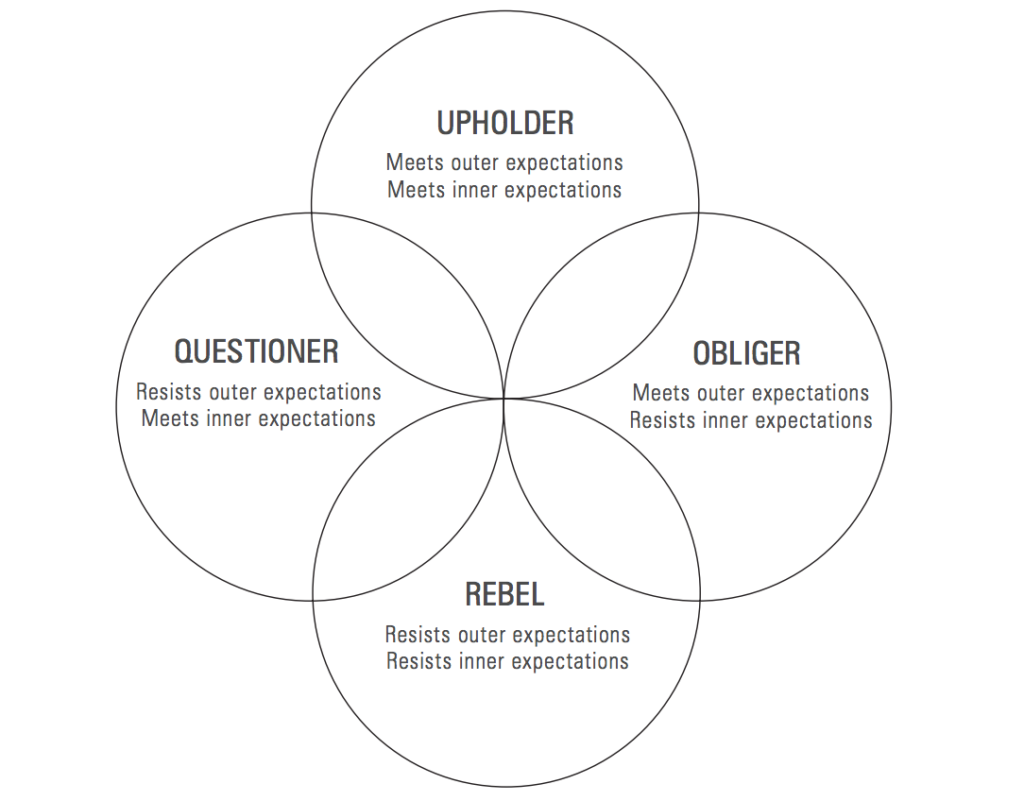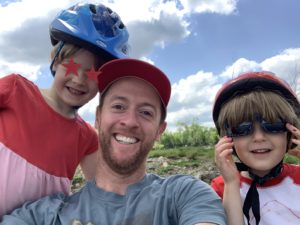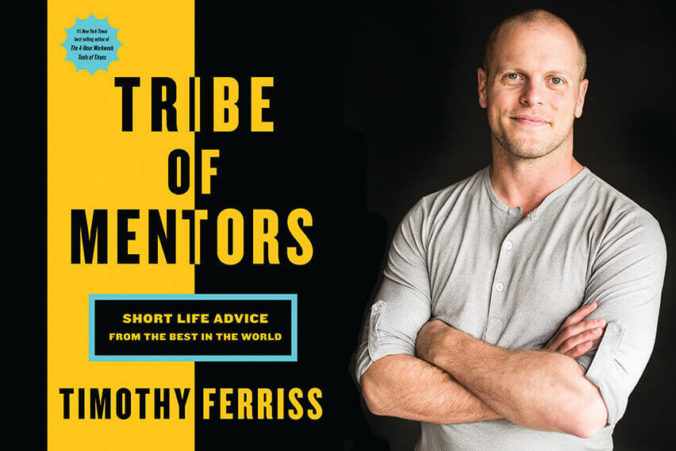A CASE OF THE MONDAY’S
I started out this week like I have many other weeks of sabbatical–feeling aimless. Many Monday’s I will make a list of what I want to do that day and that week, and I will look at the list and feel like I have a lot to do, and I will not know where to begin. I’ve tried many productivity apps and journaling systems, but try what I may, I often get a feeling of Monday Doom: so much to do, so little time, clueless where to begin.
Luckily for me, I have a life partner who listens, holds space for me, and allows me to process thoughts through conversation. It’s incredible how useful it can be to externalize my thoughts with another person; so often the act of putting my thoughts into words that are cohesive enough for someone else to understand reveals the answers to my questions without the other person needing to say anything. In a Monday morning conversation with Kristyn, I was able to see that I know I don’t ever want to have a “job” again, a job where someone else is in control of how I spend my day. Therefore, if my plan is not to jump into some preset system but instead to forge my own path, then of course it’s going to feel aimless because I am creating the aim as I go.
This realization brought me some relief; however, it also made me consider the following–how can I carve out a custom existence for myself without completely reinventing the wheel? How can I make this easier? Who can I model myself after? There clearly are other humans who have exited the traditional workforce and embarked on a less traditional, less linear path. And I do have some role models, but none that I want to emulate entirely. This line of thinking launched me into a vortex of studying the online presences of some of my role models, to really study how they present themselves and market themselves to the world. I started bookmarking and screenshotting websites like crazy. I subscribed to email newsletters. I worked on building up a picture of what my ideal lifestyle design really is. What do I like about the work other people have done? What gap do I see in all of their collective work, what questions have been left unanswered that I want to devote myself to? What am I uniquely positioned to do in this world, that my unique combination of skills, experiences, and interests will best serve the greatest good? How does one answer questions like this??
Surprise surprise… I went for a hike to process. During this hour-long walk, I left myself a ten-minute Voice Memo. The following mental downloads came to me.
I may have these exact details wrong, but I liked how in the book Better Than Before, Gretchen Rubin tells the story of her friend who wanted to write a book, and to form the habit she scheduled the time from 11am-1pm every day to be dedicated to writing. The power of Scheduling helped her form this habit. Three years later, her book was done. I love this! I love this use of time, this way of harnessing the power of the long term to one’s advantage. Over time, if I do small, incremental actions consistently, big things get done, big change can happen. As they say, Rome wasn’t built in a day.
I want to have confidence of what my vision is and where I’m headed, so that I can be laying down meaningful daily bricks toward building my own Rome. I’ve learned (from many sources including The Dalai Lama, Carmen Spagnola via Kristyn, and various guests of the Ten Percent Happier podcast) not to have too much attachment to the end result, not to be focused on completing my “Rome” to some precise specifications. But, I do believe in the power of the strategy of small practices and actions done consistently over a long period of time, and it would sure be nice to have a concrete direction for my actions. For example, if my vision was to become a professional beach volleyball player, then it would very easily become clear that my daily practices need to include a ton of physical exercise, strength training, sand workouts, and the like, as well as a focus on nutrition and on studying the game. When my vision was to complete a marathon, it became crystal clear that I needed a plan, a roadmap of weekly mileage recommendations, to get me across that finish line. I followed this 16-week plan from Runners World, scheduled all the runs in my Google Calendar, ardently followed the plan as best I could (with a few adaptations along the way for the inevitable curve balls of life that arose), and presto–I ran a marathon.
I know I don’t want a “traditional job” ever again. Unfortunately, I don’t know exactly what I do want. I’ve learned about myself enough over the past six months to know there are certain activities that are largely energy-giving to me (hiking on trails, making music, writing, playing with my kids, cooking a tasty meal, meditating, yoga, volleyball…), but I haven’t been trying to string them together in any productive, career-oriented way. So far, it’s been more about experimenting with different practices and behaviors and taking note of which ones feel right, resonant, important. I have been intentionally not thinking too far ahead, not worrying about practicality, profitability, or perfection, and instead drawing my focused inward, to the present. But, much like how the decision we made 4 years ago to move to Costa Rica made a lot of other decisions along the way more clear (knowing how important Spanish immersion school was, knowing we’d be changing employment, knowing whether or not a certain repair on the home would be worth it since we knew our move-out date…), I am wanting another hit of the clarity that comes from commitment to a direction.
I then recalled what I had seen on the websites of Spring Washam, Oren Sofer, Ryan Holiday, Tim Ferriss, Shawnell Miller, and others who are their own business, and noticed something in my mind’s eye; when you condense your life into a Navigation Bar, you are forced to pick a just a handful of words that you live by, a few choice labels you want your essence to be about. I had seen words like: Author, Books, Podcast, Newsletter, Blog, Speaking, Courses, App, Group/Club, Events. These words aren’t personal value words–those are a different set of words to live by. NavBar words can help act as useful containers for one’s work. I don’t want to simply exist and be content with stillness only. I want to do my part to make the world a better place, to make my life’s work meaningful, and to make sure I give back to the planet more than I’ve taken before I die. I want to work. I want to try. And at some point, if I’m going to find water by digging a well, I just have to pick a spot, start digging, and keep digging.
What spots am I going to pick to do my digging?
What kind of work do I want to devote myself to?
What do I want my words to be on the top of KevinCarlow.com?
What words do I want to hang my hat on?
And then it hit me, this idea and felt sense of being my authentic self, of living a life that I’m so confident in and unashamed of that I’m OK with it being public, that I’m OK with sharing it. A public way of living where I know I’m genuine and that I’m not being a fraud (by, for example, talking about how great being vegetarian is but then eating a bunch of meat myself, or by inwardly despising advertising but making my living from the industry anyway). If I hold that thought, of being so authentically me that I have no shame of being public with it because I am always just being me… that level of honesty, that’s what’s going to get me there.
I walked with this idea for a bit, and then I noticed a particular tree situated twenty feet above on the uphill side of the trail. One of its thicker branches was shaped with a natural hammock-like parabola to it, and this thick branch extended outward from the trunk at an easily mountable height of four feet off the ground. I marched up to it, climbed in, positioned my mittens under my tailbone, laid my head back, and immediately a sense of ease and peace washed over me as I gazed up at a sparse winter canopy and the bright blue sky beyond.
I then uttered, “I’m now lying in a tree and looking up at the sky. And I think I need to give myself permission to write. That is what I’m holding myself back from. To ask for and to give permission to take large chunks of hours to indulge in my interest of writing. To muster the courage to write the piece about leaving Corporate America, about leaving a successful career and why. It’s time to write that. It’s time to write the harder stuff.”

Answers arriving in a Tree Hammock
After a while I got down from my tree branch cot and, as I reached the wide open lowland area that sits right at the intersection of the narrow path that leads back to my neighborhood, I concluded the walk like this:
“And now I’m sitting here in a squat, gazing toward the setting sun (ridiculous that it’s this close to the horizon at 2:34pm), and I’m reminded of the balance of accepting that the way things are right now is totally fine. There’s so much peace and joy of sinking into… now. Today is great as it is. I don’t need to worry too much about building toward some big outcome, some epic destination. Kristyn mentioned earlier that everything I was talking about this morning was outcome-based. She’s right. I have a lot of conditioning and training from the business world about focusing on outcomes. So as I’m squatting here in my hiking boots, sinking into the soft, squishy earth of dying leaves and wet soil, I want also to sink into having a dream day, today. Whatever that means for today… going to bed with the feeling of completeness, of wholeness. That I turned over some stones today, and that the stones I left unturned were left so intentionally, mindfully. Today was not the day to turn over those stones. And that’s OK.”
TUESDAY
Morning meditations are starting to feel less like something I have to make myself do and more like something I just do. I went to bed before 10pm last night, and this morning I woke up at exactly 6:00 with no alarm (I’ve been setting my alarm for 6:15 and groggily waking up). I now have some extra time before the kids get up, and I’ve already done some stretches and am now writing this!
I followed up on yesterday’s contemplations by revisiting some of the websites of people I like. I made my way to Gretchen Rubin’s homepage, and BAM! Her opening line hit me like a ton of bricks. The featured sentence on her homepage reads, “We can accept ourselves and also expect more from ourselves.” I’ve examined the paradox between ambition and acceptance many times, and seeing this on her site gave me a conflicting sense of validation mixed with hopelessness. In a way, I feel validated that a successful author shares in my focus on this topic, on its importance. It makes me feel more connected to her and that perhaps I am onto something significant if a successful writer is also intrinsically intrigued by this yin and yang of contentment and striving. But it also makes me feel hopeless. Who am I to attempt to do anything valuable in a realm that’s already been explored by experts, by wiser, more knowledgeable, more skilled people? Who am I to write, to blog, to podcast, to create my own newsletter? Will I really be able to create anything so valuable that the world is truly better off because of my creation, as opposed to if I’d dedicated all that time to planting trees or whatever else? Ugh.
CONNECTION TO NATURE
On Friday I convinced my kid that was home from school to strap on the winter gear and head out to the snowy woods. Getting children out the door during Minnesota winters is a massive struggle, moreso with a highly sensitive child that doesn’t enjoy the feeling of snow pants and walking around in large, thick boots (especially when the destination is a “boring hike” and not sledding with the neighbor kids), but once we got going and started noticing nature’s interesting gifts, she quickly forgot about the comfort level of the snow gear.
As we got to the very end of the small trail, the very first reasonable checkpoint to turn around and return home (which is as far as I could convince my kid to go), we came upon a most peculiar sight. About 5.5 feet off the ground hung the rear portion of a rabbit carcass, skewered onto a sapling. We discussed how it might have gotten there, and we couldn’t come up with any definitive theory. We were flummoxed.
Upon returning home, my child wasted no time telling Kristyn what we had discovered. It was a most unusual sighting, after all. Kristyn, in return, wasted no time with her response to this news. Without hesitation, in supremely witch-like fashion, Kristyn’s response to learning of a skewered rabbit carcass within walking distance of our house was–we need to get that rabbit’s foot.

The back half of a rabbit just hanging around
Armed with some latex gloves and a tree trimmer, Kristyn bounded away from the house with the fervor and pace of a Black Friday shopper hellbent on beating everyone else to the best deals in town. She retrieved the foot, began the curing process, and traipsed back into the snowy lowland area behind our house to place the remaining bits in an area more easily accessible to the wildlife and the worms. Our child was understandably uneasy throughout this process, it being her first encounter with dead animal bits up close, but she fed off our energy and was curiously asking questions, and once the foot was sealed in a mason jar of isopropyl alcohol, she made sure it was placed in a location she and her sister would be able to look at it.
My experience throughout this whole ordeal was one of gratitude and of most pleasant surprise. I was thankful to myself and to my kid that we went through the painstaking process of gearing up to get outside, enjoy the fresh air, and move our bodies along the snowy path that led us to the rabbit remains. And, moreso, I was so pleasantly surprised by Kristyn’s reaction to the situation. The idea had crossed my mind that “hey, rabbit’s feet are lucky, and we just found one,” but I did not consider actually retrieving it. Kristyn had never done anything like this before, but she acted as if we had just found a pot of gold and decided to leave it out in the woods. I was proud to watch her so highly value an opportunity to gain more connection to the land around us. It’s fun being married to a witch.











